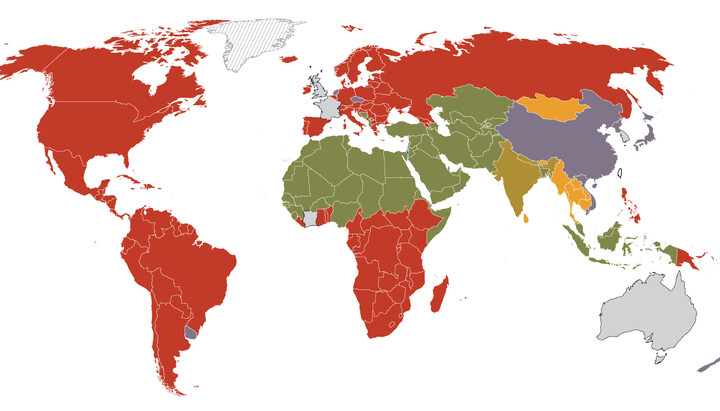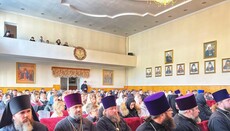Over 10 years, the number of countries with a Christian majority decreased

A Pew Research study showed a decline in the share of Christians worldwide due to a mass departure from the faith.
The American research center Pew Research published data showing that from 2010 to 2020, the number of countries with a Christian majority population decreased from 124 to 120.
According to the study, which covered 201 countries and territories worldwide, four countries lost their status as Christian-majority countries: the United Kingdom, Australia, France, and Uruguay. The main reason was the mass departure of people from the Christian faith.
Loss of Christian majority
In the United Kingdom, the share of Christians by 2020 was 49% of the population, in Australia – 47%, in France – 46%, and in Uruguay – 44%. In all these countries, the category of people not affiliated with any religion – atheists, agnostics, and those who call themselves "non-believers" – has significantly increased.
In three countries – the United Kingdom, Australia, and France – no religious group constitutes a majority, but the non-religious population has become the second-largest category, almost equaling Christians in number.
In Uruguay, the non-religious population surpassed Christians, making up 52% of the country's residents. Uruguay became the only country in the Americas where Christians do not constitute a majority.
Growth of non-religiosity
Three countries have gained a majority of non-religious population: besides Uruguay, these are the Netherlands (54% unaffiliated in 2020) and New Zealand (51%). They joined seven countries that already had a non-religious majority in 2010: China (90% in 2020), North Korea (73%), Czech Republic (73%), Hong Kong (71%), Vietnam (68%), Macau (68%), and Japan (57%).
Overall, the number of countries with a non-religious majority increased from 7 to 10. Now, countries with a Christian majority make up 60% of all countries worldwide, compared to 62% a decade earlier.
Stability of other religions
The number of countries with a Muslim majority (53), Buddhist (7), Hindu (2), and Jewish (1) did not change over the decade. However, the number of countries without a religious majority increased from 6 to 7, including Côte d'Ivoire, Mauritius, Singapore, and South Korea.
The Pew Research study is based on the analysis of demographic data and sociological surveys conducted from 2010 to 2020. The center is one of the world's leading institutions for studying religious trends.
Earlier, the UOJ reported that the number of atheists in Ukraine has increased.











